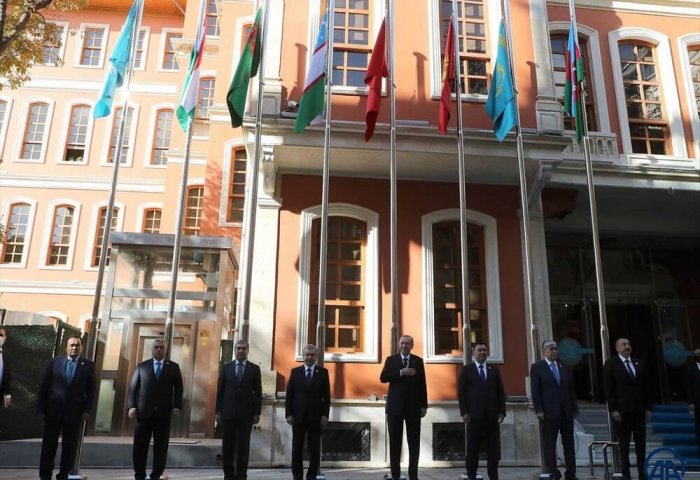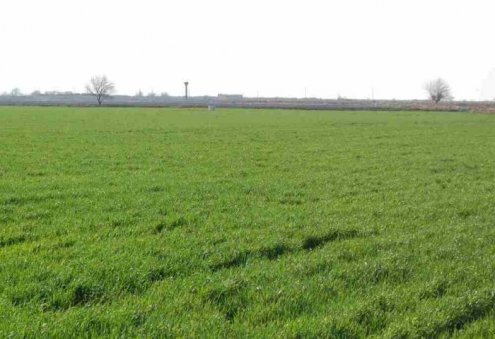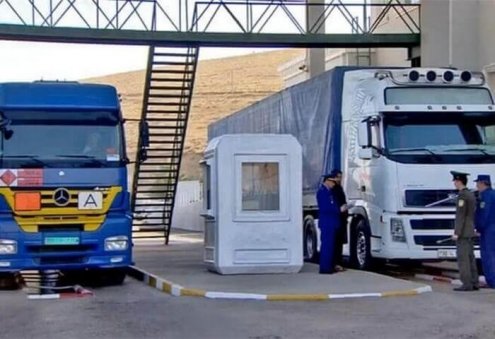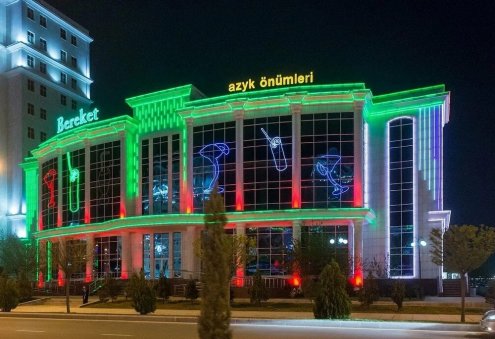The Organization of Turkic States (OTS), formerly called the Cooperation Council of Turkic Speaking States (Turkic Council), was established on October 3, 2009 by the Nakhchivan Agreement signed between Azerbaijan, Kazakhstan, Kyrgyzstan and Turkey.
On April 30, 2018, Uzbekistan declared its intention to join the Turkic Council and a year later, on September 14, 2019, became a full member of the organization. Since late 2018, Hungary has been an observer at the organization and may request full membership.
The VIII summit of the Turkic Council held last Friday on the Democracy and Freedom Island in Istanbul resulted in adoption of significant decisions regarding the future of the organization, including the renaming of the institution into the Organization of Turkic States (OTS) and the accession of Turkmenistan as an observer state.
The OTS General Secretariat is located in Istanbul, the headquarters of International Organization of Turkic Culture (TURKSOY) is in Ankara, the General Secretariat of the Parliamentary Assembly of Turkic Speaking Countries (TURKPA) is in Baku and the International Turkic Academy is in Nur-Sultan.
The Nakhchivan Agreement of October 3, 2009 states that the member-states of the organization reaffirm their adherence to the purposes and principles of the UN Charter. Its main objectives are to promote cooperation among Turkic-speaking states and to contribute to strengthening peace and security in the region and in the world. The member states also reaffirmed their commitment to fundamental values such as democracy, respect for human rights and the rule of law. The document also states that the close ties rooted in the common history of the countries allow them to develop mutually beneficial cooperation and trust.
The main purposes and tasks of institution, as set out in Article 2 of the Nakhchivan Agreement, are:
- Strengthening mutual confidence, friendship and good neighborhood among the parties;
- Maintaining peace, strengthening security and confidence in the region and in the world as a whole;
- Search for common position on foreign policy issues of mutual interest;
- Promotion of effective regional and bilateral cooperation in all areas of common interest;
- Creation of favorable conditions for trade and investment;
- Aiming for the comprehensive and balanced economic growth, social and cultural development in the region;
- Discussion of the issues of ensuring rule of law and good governance and guarantying human rights and fundamental freedoms;
- Expansion of interaction in the fields of science and technology, education, health, culture, sports and tourism;
- Promotion of interaction of the mass media;
- Exchange of information and cooperation in various spheres of legal relations.
OTS member states strive for comprehensive cooperation in all spheres, especially economic, education and culture. At the same time, membership in it does not affect the rights and obligations of countries under other international treaties to which they are parties. Neutral Turkmenistan follows the same policy. The country for the first time took part in the last summit of the organization at the presidential level as an observer.
OTS member states account for a population of around 150 million, cover an area of over 4.2 million square kilometers, and have a total GDP exceeding $1 trillion. As such, the organization plays a significant role in the global economy, and that role will only increase as cooperation among its members and observers develops.
In terms of historical significance,
Experts characterize the recent summit of the organization, held on November 12, 2021, as historic, stating that the approved decisions, tasks and objectives are of great historical importance in terms of the geopolitics, economy and culture of the region. The Turkic States for the first time assessed their relations and opportunities for cooperation and at the eight summit identified important global, regional and national issues. In addition, the states were also proposed to develop a common policy.
During Tuesday's briefing on the results of Turkmen President Gurbanguly Berdimuhamedov's visit to Turkey, Deputy Foreign Minister Vepa Hajiyev stressed the special importance of Turkmenistan's accession to the organization. He noted that the summit marked a new milestone in the interaction of Turkmenistan with Turkic-speaking states where there are opportunities in a variety of fields, including the economy, trade, investment, ecology, science and education. He said the organization, as an important regional structure, unites the Turkic-speaking community and verified that cultural values unite the people of the world and strengthened humanitarian dialogue between countries.
Nurmyrat Mommayev,
PhD Candidate at Marmara University's Department of Political Science and International Relations in Istanbul, Turkey


















